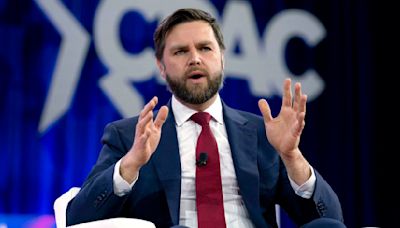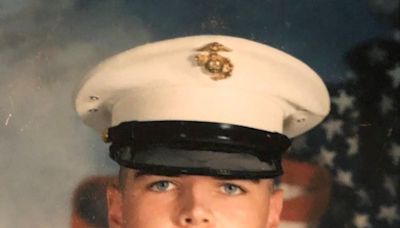Search results
Nov 17, 2014 · November 17, 2014. Muhammad Ali, Abraham Lincoln, and Georgia O'Keeffe are among the Americans listed Wikicommons. How much does Thomas Paine matter? More than Harriet Beecher Stowe? Less than...
- Smithsonian Magazine
Smithsonian Magazine Nominated for Two National Magazine...
- Smithsonian Magazine
- The Triangle Shirtwaist Factory Catches Fire
- The Great Migration Begins
- The Prophet Is Published
- The KKK Marches in Washington
- Thomas Dorsey Invents The Gospel Blues
- Harry Hopkins Starts Work
- Fdr Accepts The 1936 Democratic Presidential Nomination
- Hugo Black Is Appointed to The Supreme Court
- Truman Replaces Wallace
- The North Atlantic Treaty Is Signed
By Michele Anderson The Triangle Shirtwaist Company’s fire resulted in the tragic loss of nearly 150 young women and girls on March 25, 1911, in New York City. The garment workers at the company had been attempting to unionize to gain better wages and improved working conditions. The factory’s management responded by locking the workers into the bu...
By Isabel Wilkerson In today’s world African Americans are viewed as urban people, but that’s a very new phenomenon: The vast majority of time that African Americans have been on this continent, they’ve been primarily Southern and rural. That changed with the Great Migration, a mass relocation of 6 million African Americans from the Jim Crow South ...
By Jennifer Ratner-Rosenhagen In the aftermath of World War I, the Lebanese-born, Boston-based poet-philosopher Kahlil Gibran wrote what would become one of the world’s most translated works of philosophy: The Prophet. This collection of inspirational sermons delivered by a fictional prophet—on love, marriage, work, reason, self-knowledge and ethic...
By James Loewen When the KKK paraded down Pennsylvania Avenue in Washington, D.C., the headline in the New York Timesdeclared “Sight Astonishes Capital: Robed, but Unmasked Hosts in White Move Along Avenue.” The marchers, the article noted, received “a warm reception.” The parade took place in broad daylight, in the nation’s capital, and most of th...
By Jon Butler In Chicago in 1932, an African American composer named Thomas A. Dorsey, who had been a nightclub jazz pianist, wrote a song inspired by his wife’s death in childbirth. The song, “Take My Hand, Precious Lord,” unexpectedly became the foundation for the modern African American gospel music tradition. Its success stimulated an entirely ...
By Linda Gordon About two months after he took office, Franklin Roosevelt appointed a former social worker to head an emergency program of aid to the unemployed. The moment Harry Hopkins started work, on May 22, 1933 —before he even had an office—he dragged a desk into the hall of the building where he was located and immediately began sending out ...
By Jefferson Cowie The “political equality we once had won,” FDR boomed as he accepted the Democratic nomination for a second presidential term in 1936, had been rendered “meaningless in the face of economic inequality.” The government no longer belonged to the people but had been taken hostage by “privileged princes of these new economic dynasties...
By Akhil Reed Amar Hugo L. Black of Alabama, FDR’s first appointment to the Supreme Court, defined the American judicial scene for three and a half decades. Black first defined and then implemented a reformist agenda that would revolutionize modern American constitutional law. For his first 15 years, Black set the table with new ideas—often present...
By William Chafe The Cold War seems inevitable, but few things are. Rather, that road diverged in July of 1944, when Harry S. Truman took the place of incumbent vice-president Henry Wallace on the Democratic ticket. After World War II, President Roosevelt had a secret plan for how he would work things out with Stalin, but he died before sharing it....
By Richard Stewart The signing of the North Atlantic Treaty meant that, after intervening twice in the previous 32 years to restore peace in Europe, the U.S. was finally committed to an international alliance in peacetime, focused on preventing war in the first place. That act shaped our foreign policy, politics, military spending, military structu...
A list of over 50 people who changed America and helped to influence the United States. 18th Century Thomas Jefferson (1743-1826) was the principal author of the Declaration of Independence, which asserted rights and freedoms of American citizens.
Jun 30, 2017 · In the roughly two and a half centuries since America first celebrated its independence, there have been plenty of opportunities for moments big and small to sway the course of the nation’s...
Untold Stories of American History. Explore the lives of little-known changemakers who left their mark on the country. Illustration by Meilan Solly / Photos via Pennsylvania Academy of the...
Jun 28, 2018 · Change takes place over years, but moments remind us how we got where we are. TIME asked historians to select events that resonate today.
Host Geoffrey Baer takes viewers across the country to the legendary streets, monuments and man-made marvels that changed America.
People also ask
Who Changed America and influenced the United States?
How did American life change over time?
Who made 10 that Changed America possible?
What are some great moments in American history?



